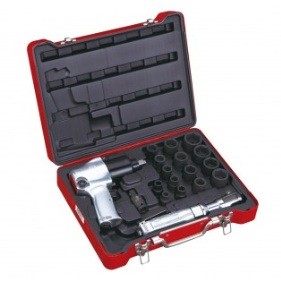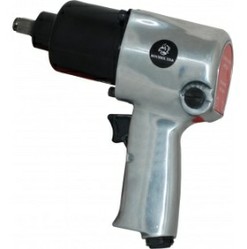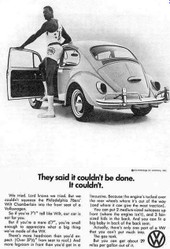Air tools, or pneumatic tools, offer many advantages over electric power tools. Air tools offer a higher amount of torque and durability and they're used in many applications, from auto shops to construction sites. Because they have fewer moving parts, pneumatic tools tend to last longer than conventional tools and they work with compressed air, along with a large amount of mechanics' tools. These tools work by gathering air from a compressor through a hose.

Overview of Air Tools for Mechanics
by Bovidix
Mechanics use a great range of air tools, including impact wrenches and die grinders. Here's an overview of what's required for these industrial tools and the most common types.
How to Choose an Air Compressor
Operating pneumatic industrial tools requires an air compressor as well as hoses, pipes and fittings. Compressors are always sized by standard cubic feet per minute, or SCFM, which measures how much air the compressor can deliver while it's running. You must choose an air compressor that meets the minimum performance of the tools you'll be using. There are two main types of air compressors: single-stage and two-stage units. Single-stage compressors are the least expensive but they're smaller and much louder. Two-stage compressors cycle less often, offer better continuous pressure and operate quietly. You'll also need to consider the size of the tank as a large tank can hold more air for less kick, although it's not portable.
Necessary Hoses and Fittings
An entire system of air lines for pneumatic tools is designed based on the size of the garage and how often the tools are used. Small auto shops can get by with 3/8" flexible rubber hose. Larger garages typically use permanently installed rigid lines.
 Bovidix Air Tools Multibox Tool Set |
Best Air Tools for Mechanics
1. Impact Wrench. These air tools are capable of up to 700-lb-ft of torque so they must be used with high-quality impact sockets. They're probably the most commonly used air tools by mechanics and make it easy to loosen and tighten bolts and nuts with a steady amount of torque.
2. Inflator and air gauge. These industrial air tools are designed to inflate flat tires easily and don't lose pressure gauge.
3. Drill. Air drills won't run out of power or overheat which makes it easy to bore large holes in thick metal.
4. Orbital Sander. Pneumatic sanders have better power than electric sanders and offer a smoother action.
5. Ratchet. While manual ratchet tools work well, pneumatic ratchets are faster and easier for large jobs.
6. Paint sprayer. These air tools are also popular with house painters because they quickly and efficiently paint large areas with a high-volume, low-pressure system.
7. Cut-off wheel. These tools quickly and easily cut sheet metal and fiberglass.
8. Blow off. These simple and affordable tools are comprised of a valve and nozzle and make it easy to remove debris that's hard to reach.
9. Die Grinder. Die grinders can be used to remove paint, smooth pitted areas and grind down metal.
10. Reciprocating Saw. This is another pneumatic industrial tool designed to cleanly cut wood, plastic and metal with ease.
You might also like
5 Things to do after you're in a car crash to get back on the ...In the United States, millions of car crashes happen annually because most dr...
DIY Extreme Car Body Repair-Must seePeople at the lower end of the economic ladder keep their cars longer and do ...



 Comprehensive Guide to Drill Bitson 09/21/2012
Comprehensive Guide to Drill Bitson 09/21/2012
 Most Common Hand Tools for an Electricianon 09/14/2012
Most Common Hand Tools for an Electricianon 09/14/2012
 Top 10 Hand Tools for the New Homeowneron 09/04/2012
Top 10 Hand Tools for the New Homeowneron 09/04/2012
 How to Buy a Tap & Die Seton 08/28/2012
How to Buy a Tap & Die Seton 08/28/2012


Comments